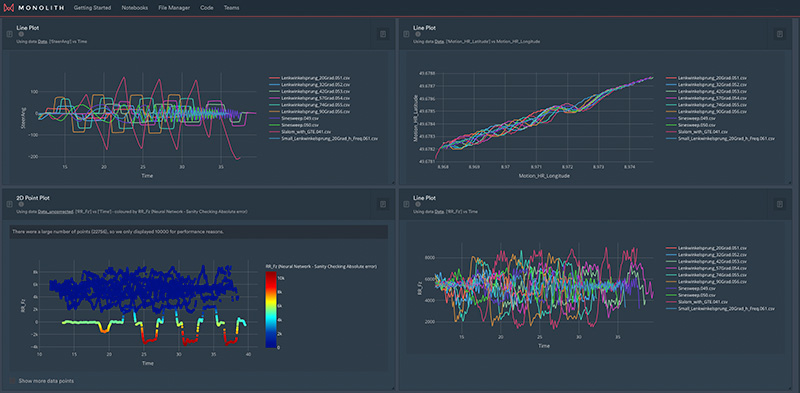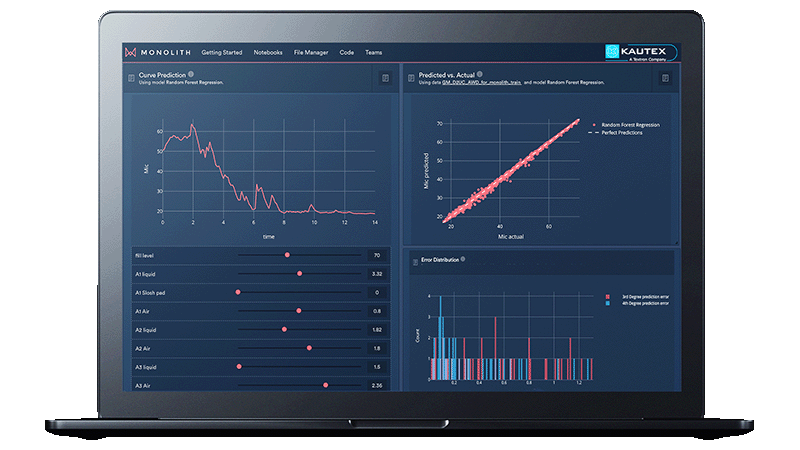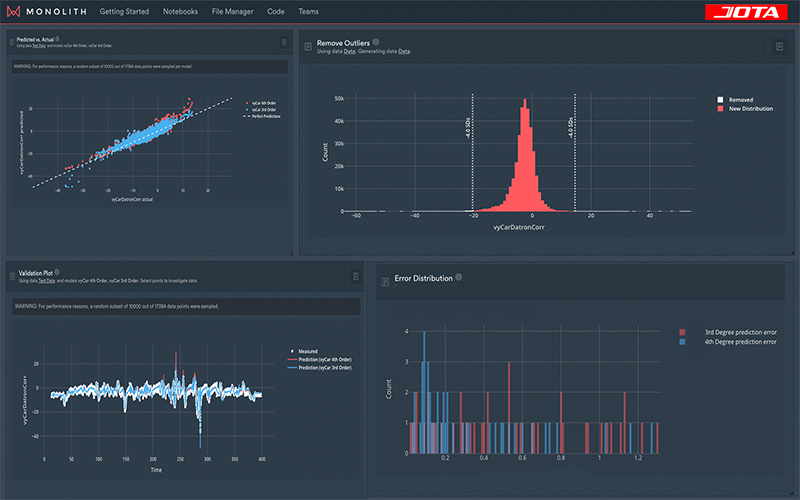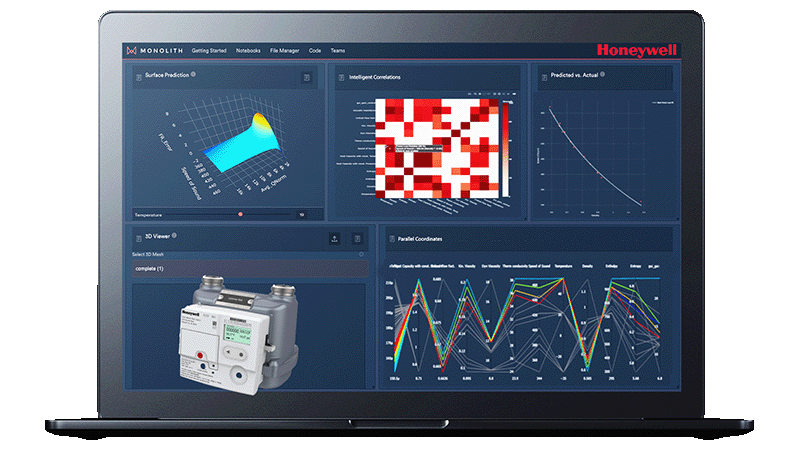Monolith
Accelerate product validation
with AI-guided test
Test less. Learn more. Get to market faster.


“Monolith allowed us to understand and optimize the gas meter's behaviour for all operating conditions and optimize meter accuracy under extreme conditions, allowing us to build a superior, more accurate product in a much shorter amount of time.”
- Bas Kastelein, Sr. Director Product Innovation, Honeywell Process Solutions

“Monolith Team understood what it means to work with genuine engineering problems in artificial intelligence: the needed flexibility and knowledge. ”
- Joachim GUILIE, Curing performance expert at Michelin


“The Monolith engineering team are unique experts in the field of solving scientific problems with machine learning. I trust them to guide our team to get the greatest ROI from AI and magnify our engineering talent and expertise. ”
- Dr. Paul Gosling, Chief Technology Officer, Thales UK
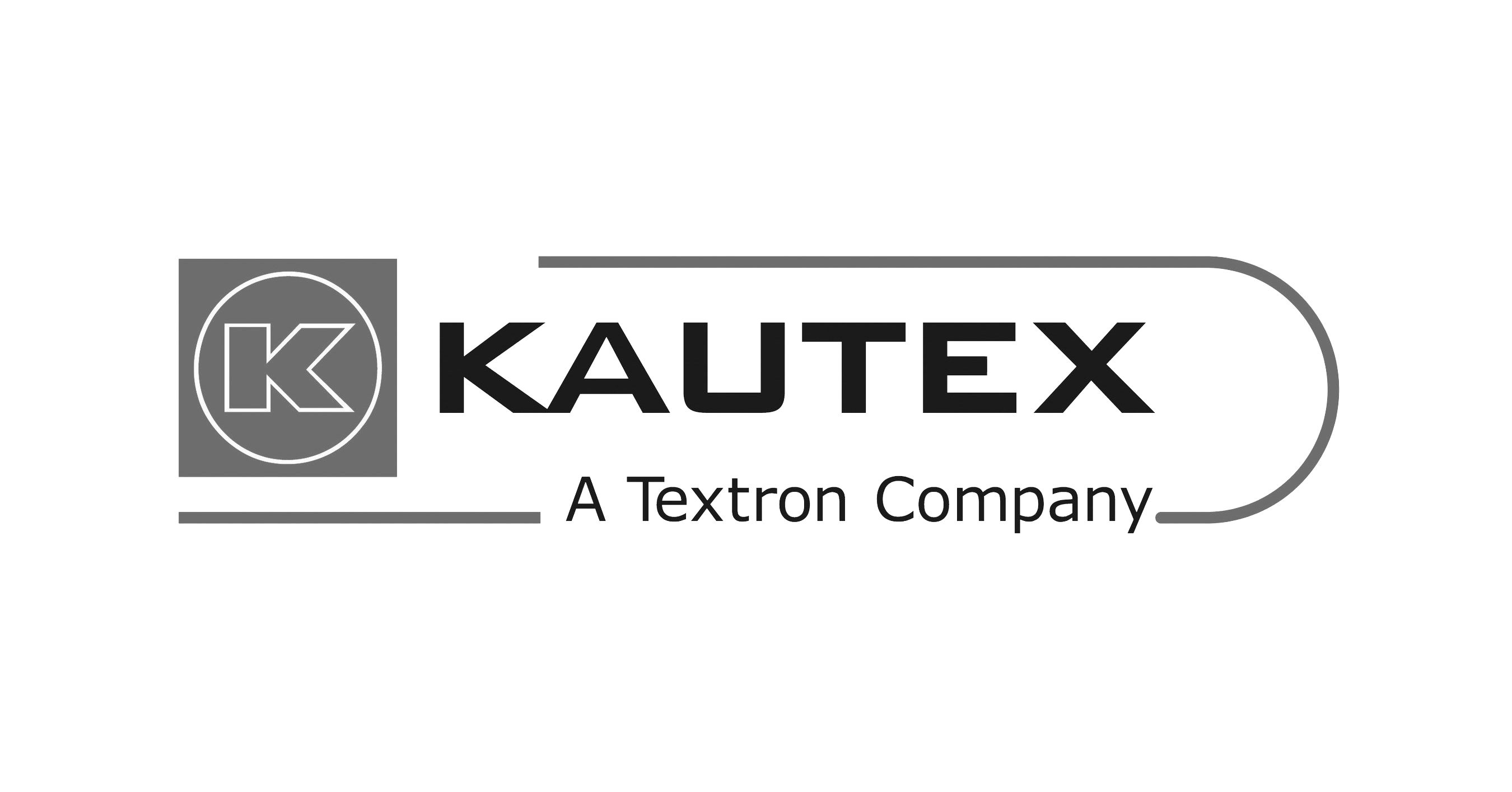

“With Monolith’s machine learning method, we not only solved the challenge, we also reduced design iteration times and prototyping and testing costs. We are thrilled with the results, and we are confident we have found a way to improve future design solutions.”
- "Dr. Bernhardt Lüddecke, Director Validation Global Kautex-Textron

Trusted by top engineering teams to cut product development time.
The world's top tech companies and engineering teams use Monolith to develop better quality products faster with machine learning models.
Request a Demo

Build accurate self-learning models.
Use your engineering data to create accurate self-learning models to quickly understand and instantly predict the performance of complex physics & explore more operating conditions through our machine-learning platform.

Named by Gartner as a Cool Vendor in AI for automotive.
“Companies such as Monolith…apply their AI Software to improve vehicle development, quality control, and inspection, ensuring lower costs and higher levels of safety and quality.”
Our AI Software
No-code AI software built for engineers
Monolith is a machine learning AI platform built by engineers, for engineers. No coding or Ph.D. in statistics or computer science is required - just your engineering expertise and test data.
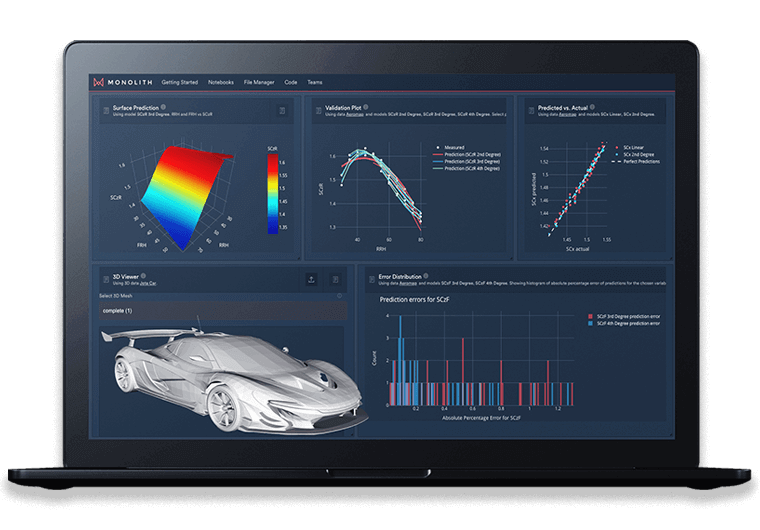
AI Simplifying Validation Testing
4 applications for AI in validation test
AI has a significant impact on validation testing in engineering product development. You can reduce testing by up to 73% based on battery test research from Stanford, MIT, and Toyota Research Institute. Learn more with Monolith.
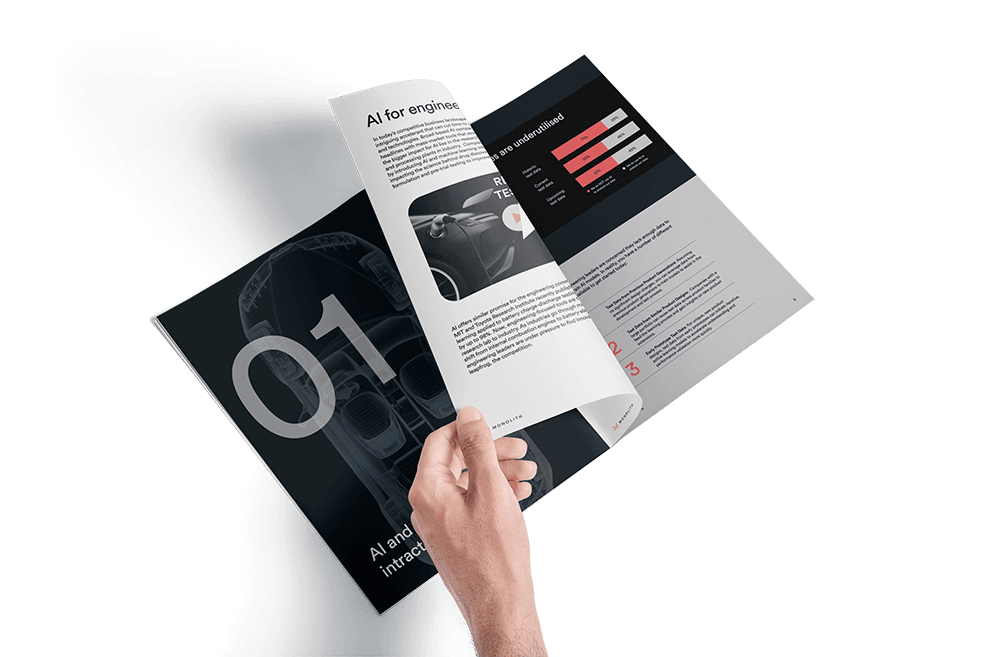
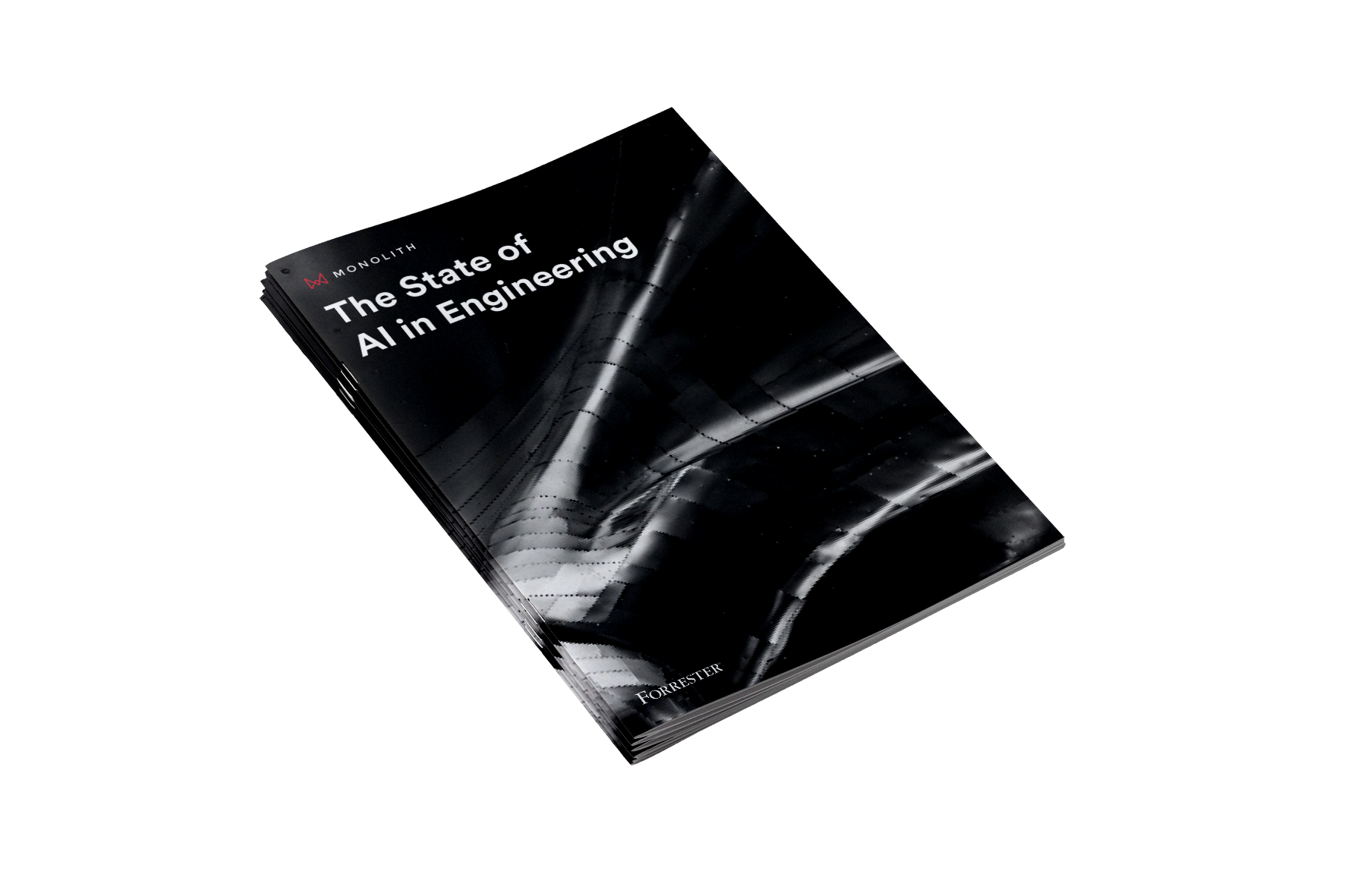
A commissioned study conducted by Forrester Consulting on behalf of Monolith
The State of AI in Engineering
The first-ever study on AI in product development surveys US and European automotive, aerospace, and industrial engineering leaders.
Download Report
Watch On-Demand Webinar
On-Demand Webinar
Battery testing with AI:
Build a more efficient test plan you can trust
In the first part of the EV webinar series, we reviewed the latest research on using AI models to significantly reduce the testing needed for EV batteries. In this follow-up webinar, we’ll show how to implement these concepts using Monolith software.
Four ways to use AI to cut validation costs
Build shorter test plans, create fewer prototypes, find errors faster, and validate designs more quickly using AI-based self-learning models.
1. Automatically detect faulty sensors
To avoid downstream issues, your engineers must tediously inspect test data for errors. One failed sensor or wiring malfunction can render thousands of dollars in testing useless.
- Prepare your data for optimal AI performance
- Catch bad data now so you avoid re-engineering later
- Find outliers in your test data fast with intuitive visualisation
2. Predict the critical tests to run
Test too much and you waste time confirming what you already know. Test too little and risk missing performance issues. Schedule, quality and your career depend on finding the balance.
- Run the most important tests and skip the rest
- Optimize resources spent on costly test rigs and facilities
- Validate your designs faster with fewer prototype iterations
3. Determine the cause of system failure
Product design issues during validation risk launch delays and lost market share. Pressure on engineers is high to identify critical parameters causing failure, quickly analyze the root cause, and predict how the product will perform in changing conditions.
- Predict what design changes will most likely fix the failure
- Identify components causing sub-optimal performance
- Avoid long delays and uncertainty in the validation process
4. Calibrate for thousands of conditions
Designing highly complex, non-linear systems that must meet stringent performance standards is challenging. Predicting which combination of inputs will deliver the optimal output, in all operating conditions, is next to impossible.
- Calibrate complex dynamic systems
- Ensure your system performs to spec in all conditions
- Find best-fit values across 1000's of inputs and conditions
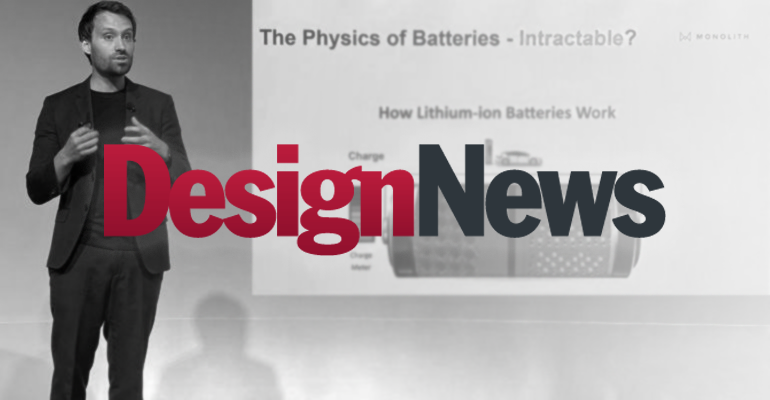
Monolith In the News
Design News: AI Tool Reduces Battery Testing by Up to 70%
Dr. Richard Ahlfeld, Monolith's CEO and founder, highlighted the challenges in battery testing due to increasing demand and fierce competition in a conversation with Battery Technology following his keynote at The Battery Show North America in September.
Get Started
Get started with Monolith, your trusted AI partner
Learn how to begin AI adoption in your engineering organization and understand the technical requirements for the applicability of artificial intelligence engineering software to your organization.
Find out how we support the world's top engineering teams, and how you can be sure you will succeed with AI tools to deliver better quality products in half the time.
New Feature
Next Test Recommender (NTR): AI-powered test plan optimisation
Learn how our AI software's latest feature enables users to train and assess machine learning models. It offers valuable recommendations for optimal test conditions to apply in the next round of testing. NTR assesses previously gathered data to suggest the most effective new tests to conduct.
Featured Content
Robust active learning for next test recommendations
Integrating Monolith in your verification and validation process can enhance operational efficiency and streamline testing procedures, reducing reliance on excessive physical tests.
News Center
Find out how we empower engineers to use AI
Ready to get started with Monolith AI software?
Request a Demo
Speak to our Team


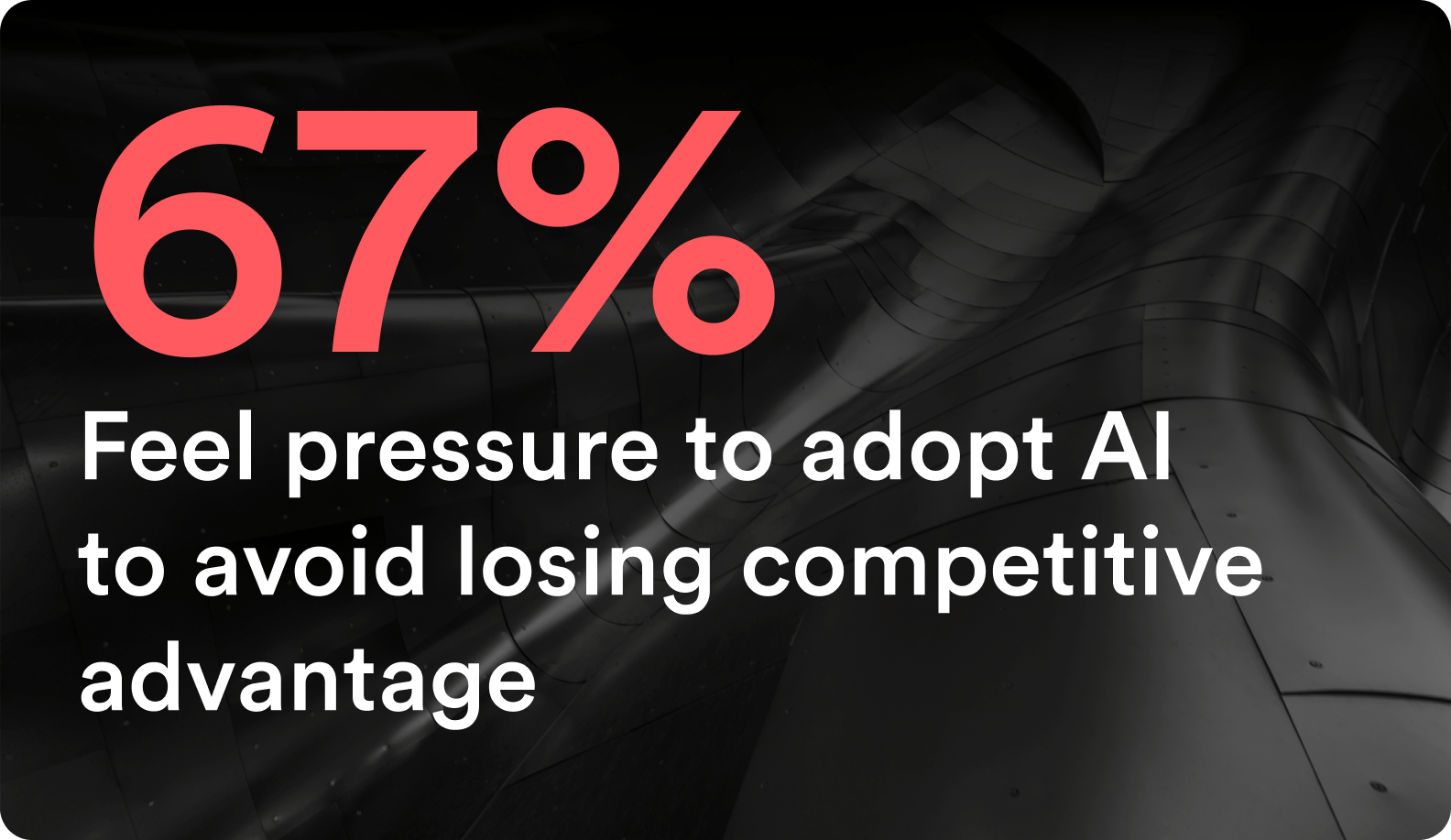
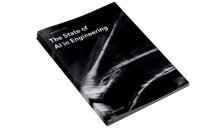
_4_w_66.png?width=66&height=66&name=BMW_logo_(gray)_4_w_66.png)


